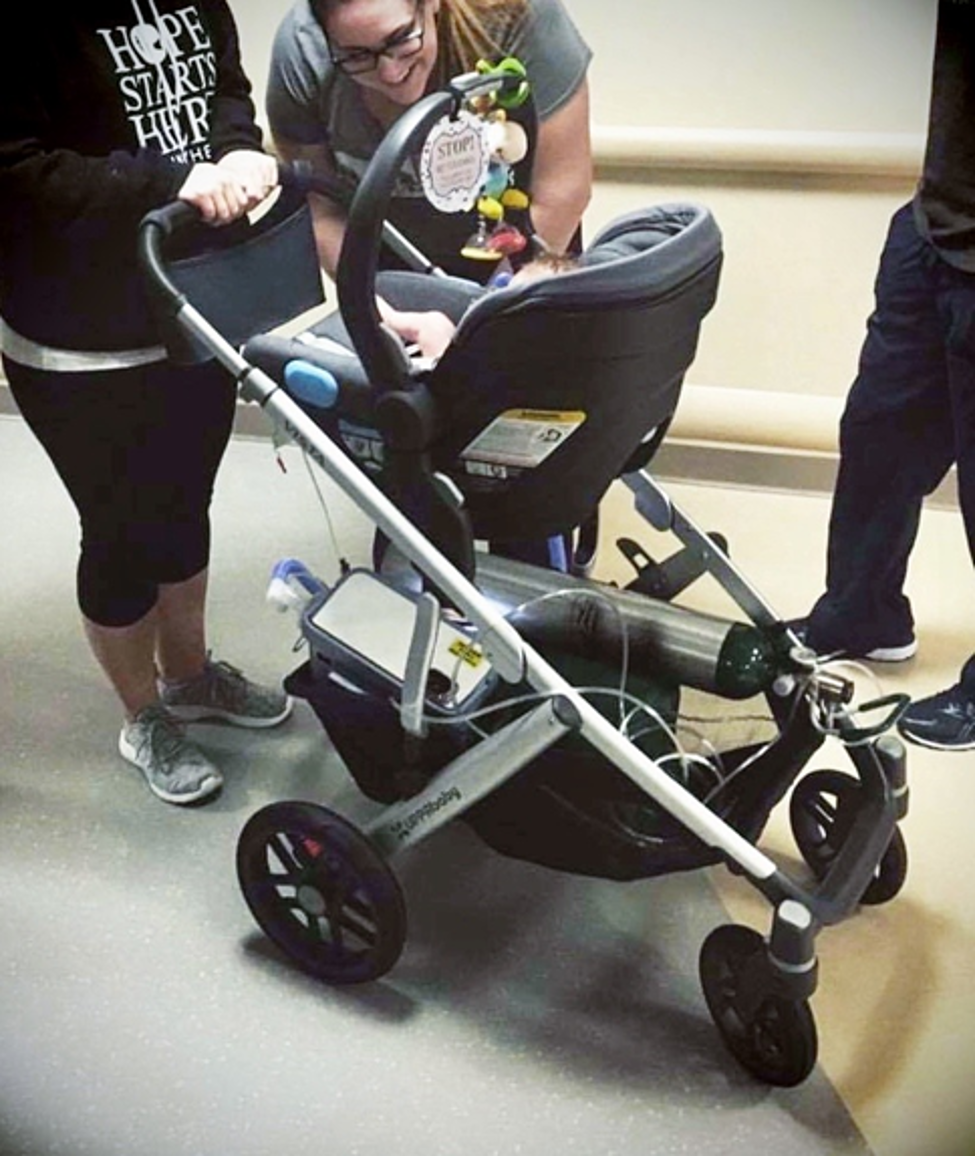FAQ on CDH After Birth
What is the average length of a hospital stay? The length of the stay will depend mainly on two factors. First, where you go for care, and second, the severity of the CDH and whether other defects further complicate it. Hospitals that see a large number of cases per year will usually have the experience needed to get babies home more quickly, even when severe. The stay at a top CDH hospital averages about 2-3 months, while a less experienced hospital maybe more like 5-8 months! Although a less severe case may only require a couple of weeks in the hospital, a more severe hernia complicated by a heart defect may take many months beyond average. If your local hospital has estimated 4+ months, it never hurts to get a second opinion from a top hospital. You might be able to cut your stay in half and increase survival odds simply by relocating somewhere else.
How many surgeries will my baby need? It is so hard to answer this question! Every case will be different, and the number will depend on factors such as whether or not your baby needs ECMO or a Nissen/G-tube, and if any other defects need correcting (heart defects, other hernias, etc.).
When will the surgery to repair my baby’s CDH be done? Repair timing depends on several things, such as severity and need for ECMO. Often the more severe your baby’s CDH is, the quicker the repair will take place. You’ll want to make sure that the hospital you choose will operate while on ECMO and that they do not wait for your baby to be stable before operating. Sometimes the sickest babies need surgery in order to gain stability, while less severe babies may benefit from waiting a few days or a week after birth. Your baby’s surgeon will provide you with specific details on this at your consultation, and once your baby has been assessed after delivery.
Can I vaccinate my CDH baby? If you have decided that you’d like to vaccinate your children, it is usually not a problem! You’ll need to have a conversation with their doctor to confirm that they are on board. Still, in general, it is typically perfectly fine to go ahead with vaccinations on a standard or delayed schedule.
Will my baby need therapy? Your CDH baby may need some therapy, especially early on. Babies in the NICU aren’t able to do tummy time as often or move around like other babies. This can cause some delays in gross motor skills. They also sometimes have oral aversions and struggle with eating, which can be worked on in speech therapy or by an occupational therapist. Most states have a free, state-funded, early intervention program that covers this cost, and often if you explain the need to be protected from germs, the therapist will even go to your home for therapy sessions. Most CDH children outgrow the need for therapy and catch up to their peers by about age 2. However, if your child doesn’t, that’s okay too! It’s all in their time!
Can I babywear? Once you come home, you can absolutely wear your baby in a baby carrier! In fact, besides helping you bond, it is often beneficial since sometimes CDH babies come home on oxygen. Wearing your baby will keep your hands free and allow you to push the tank around or wear the O2 on your back. Also, babywearing is a great way to keep others from touching your baby with germy hands.
What kind of stroller do I need? Honestly, in most cases, just about any stroller will work well for a CDH baby. You may want to ensure the bottom compartment is large enough for an O2 tank and a diaper bag (an umbrella stroller may not be ideal). But overall, most strollers should work just fine, unless your baby comes home with a trach and a lot of medical supplies.
Will my baby be able to wear clothes? Initially, no; however, once they are out of the critical stage, yes! While your baby is critical, they will likely limit you to socks, mittens, bows, and hats (so feel free to stock up on those items!). Then once they come off the ventilator, clothes will usually be allowed. As you shop for clothes for the NICU, remember to look for things that button down the front. This will allow for easy access to lines.
How much medicine will my baby come home on? This will vary from child to child. However, it is pretty common to go home on some type of reflux medicine. Some CDH babies may also come home on medication to help with pulmonary hypertension, gastric emptying, or Lasix. Usually, the use of these is relatively short, and they are weaned not too long after coming home, but occasionally they are needed longer.
I have so many records for my baby. How do I keep track of them all? Many parents find it helpful to have a notebook or binder that contains all of their child’s most important records from the hospital stay. As you establish who your child’s local doctors will be, you can let them make copies of your documents and add to them as your child gets older. Speak to the discharge planner at the hospital, and he/she can help.
Email stories@tinyhero.org to learn about how you can write for Tiny Hero.




